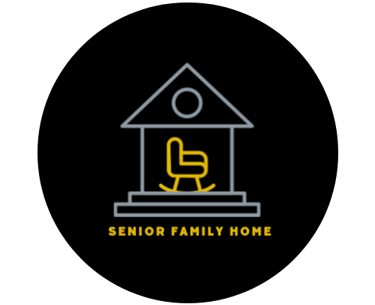Top 5 Brain-Boosting Activities for Seniors That Truly Work


Why Cognitive Health Matters for Seniors
As we grow older, it's natural for our cognitive abilities to shift. Some forgetfulness is normal, but that doesn’t mean we can’t fight back against memory loss and mental decline. In fact, staying mentally active is one of the most powerful ways to maintain independence, confidence, and quality of life for seniors.
For older adults in Residential Care Facilities for the Elderly (RCFEs), structured and engaging brain-boosting activities are not just beneficial—they’re essential. They support emotional well-being, enhance social interaction, and often slow the progression of age-related cognitive decline.
1. Puzzle Solving and Brain Games
From the classic crossword to modern brain-training apps, puzzles remain a gold standard for mental engagement. They stimulate various parts of the brain and can even enhance memory, processing speed, and concentration.
Popular Brain Game Ideas:
Crossword puzzles – Great for word recall and pattern recognition.
Sudoku – Boosts logic, planning, and numerical skills.
Matching and memory card games – Fun and accessible even for seniors with mild memory loss.
Tablet-based apps like Lumosity or Elevate – Designed specifically to enhance cognitive functions.
Plus, puzzles are easy to adapt for different skill levels, making them perfect for both independent seniors and those in assisted care environments.
2. Social Interaction and Group Activities
Human connection is a vital ingredient for mental wellness. Participating in social events helps seniors stay sharp, prevents feelings of loneliness, and keeps spirits high.
Group Activities That Stimulate the Brain:
Book clubs – Encourage comprehension and discussion.
Game nights – Card games or board games like Scrabble foster friendly competition and strategy.
Discussion groups or current events roundtables – Inspire critical thinking and memory recall.
In an RCFE setting, structured social programs not only promote cognitive health but also foster community and belonging.
3. Learning Something New
It's never too late to learn. Studies show that learning unfamiliar skills keeps the brain flexible and forms new neural connections, a process known as neuroplasticity.
Brain-Boosting New Skills to Try:
Language learning – Even basic vocabulary lessons can enhance memory and attention.
Music lessons – Playing an instrument combines memory, coordination, and emotional expression.
Arts and crafts workshops – Stimulate creativity and problem-solving.
RCFEs can offer residents regular access to classes that match their pace and interests, reinforcing the joy of lifelong learning.
4. Physical Exercise with a Cognitive Twist
What’s good for the body is great for the brain—especially when movement requires concentration and coordination.
Ideal Activities Include:
Tai Chi – Combines balance, memory, and gentle movement.
Dance classes – Syncs rhythm and physical motion with memory.
Chair yoga or movement games – Accessible for seniors with mobility issues, these still stimulate mind-body connection.
These activities are perfect for RCFE settings, providing a dual benefit of fitness and brain engagement.
5. Arts, Crafts, and Creative Hobbies
Creativity isn’t just fun—it’s powerful therapy. Artistic expression taps into emotions and memories, promotes relaxation, and sharpens attention to detail.
Creative Ideas to Explore:
Painting and drawing – Encourage color recognition, hand-eye coordination, and imagination.
Knitting or crocheting – Repetitive, calming, and great for focus.
Story writing or journaling – Helps with memory, language skills, and emotional release.
Many RCFEs have art rooms or creative hours, which can be key in enhancing resident well-being.
Tailoring Activities to Individual Abilities
No two seniors are alike. Customizing activities ensures everyone can participate meaningfully. Whether adapting a crossword for larger print or simplifying a game for someone with dementia, the goal is to keep it engaging and accessible.
Encouraging Participation in RCFE Settings
Caregivers and staff play a vital role. Encouraging group participation, recognizing small successes, and making activities part of daily routines all help build consistency and motivation.
Tools and Resources to Support Cognitive Health
Here are some handy resources:
Apps: Lumosity, Peak, Elevate
Books: “The 36-Hour Day” (for caregivers), puzzle books for seniors
RCFE planners: Help staff rotate engaging, inclusive activities
Printable checklists: Useful for caregivers to track engagement and progress
Tips for Caregivers Supporting Brain Health
Start small – Choose short, manageable tasks.
Be consistent – Daily repetition helps build habits.
Use positive reinforcement – Celebrate every win.
Track changes – Noticing improvements (or decline) helps you adapt plans.
Common Myths About Senior Brain Health
Myth 1: Mental decline is inevitable.
Fact: Staying active can dramatically slow or reduce cognitive aging.
Myth 2: Seniors can’t learn new things.
Fact: The brain can form new connections at any age!
How to Get Started with Brain-Boosting Activities
Here’s a simple weekly starter plan:
DayActivityMondaySudoku and memory card gameTuesdayTai Chi classWednesdayArt or knitting groupThursdayBook club discussionFridayDance classSaturdayPuzzle and journalingSundayRest and reflection
Frequently Asked Questions
1. Are brain games really effective for seniors?
Yes, consistent use of brain games can improve memory, focus, and mood.
2. What activities are best for seniors with limited mobility?
Chair yoga, memory games, storytelling, and simple puzzles are great options.
3. Can these activities help seniors with dementia?
They can help slow progression, reduce anxiety, and improve daily function.
4. How often should seniors engage in cognitive activities?
Daily, even short sessions (15–30 minutes), show great benefits.
5. Are group activities better than solo ones?
Group settings offer added social and emotional advantages.
6. Where can I find free brain-boosting resources?
Many apps have free versions, and sites like AARP.org offer printable activities and guides.
Final Thoughts and Encouragement
The mind is a muscle—and just like the body, it needs regular exercise to stay strong. Whether you're a caregiver or a senior looking to stay sharp, there's no shortage of fun and meaningful activities that make a big difference. Start small, stay consistent, and enjoy the journey.


